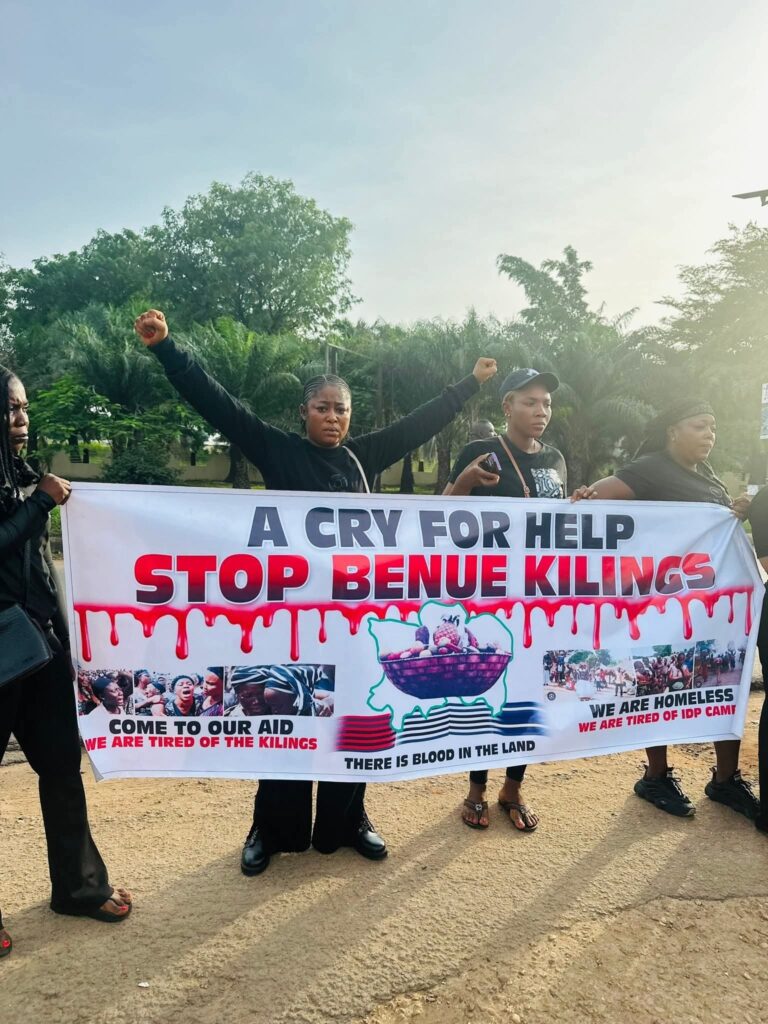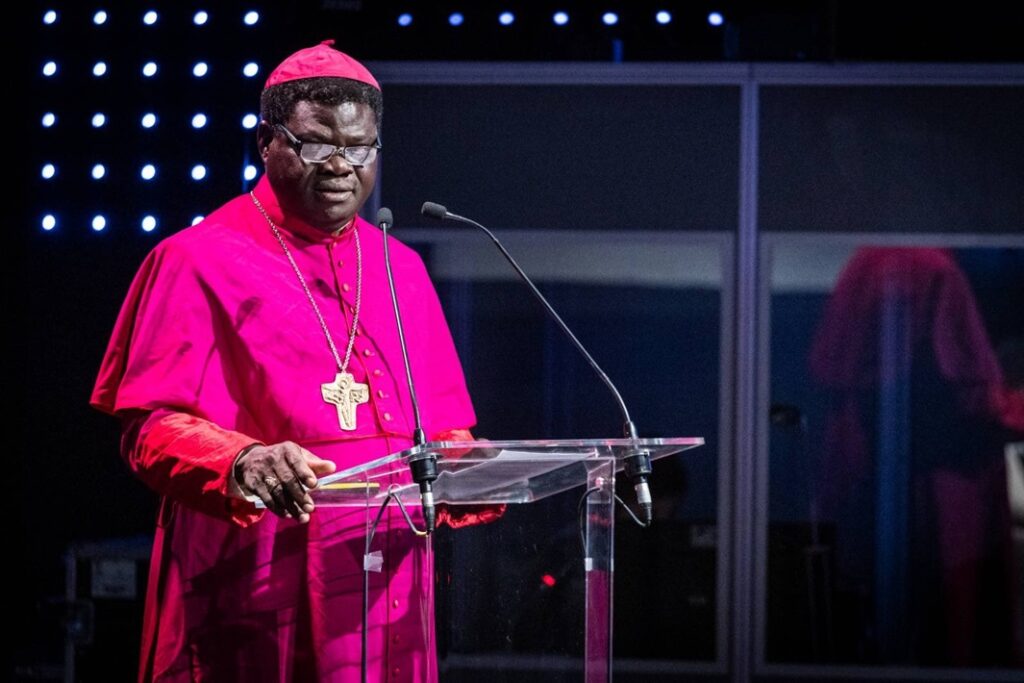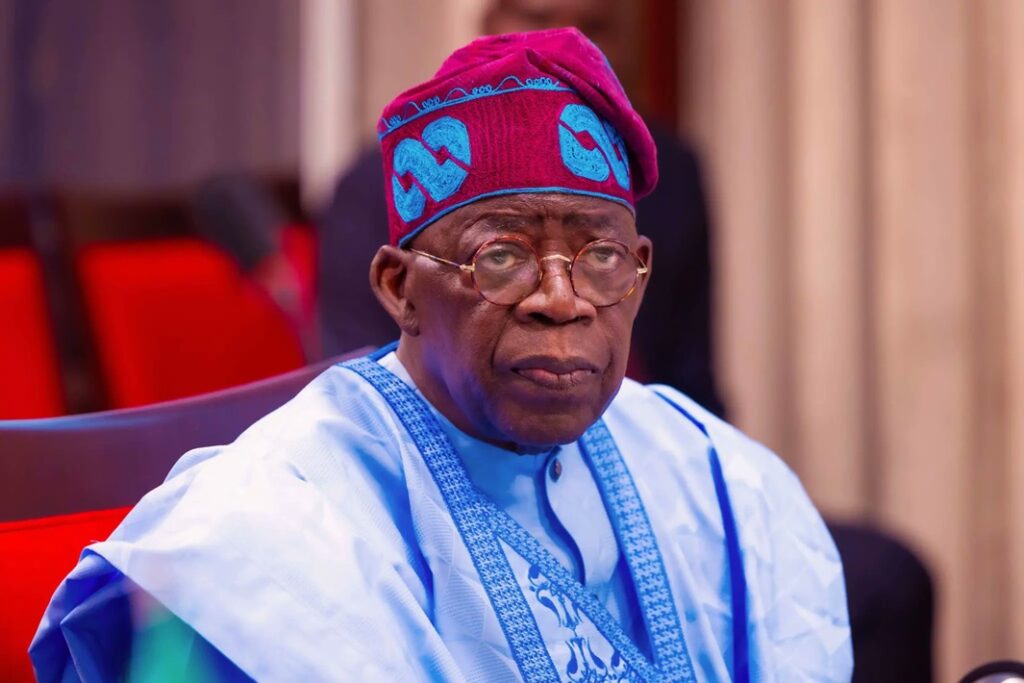By Paschal Norbert
WASHINGTON/ABUJA, NOVEMBER 4, 2025 (CISA) – In a blistering rebuke that has stirred diplomatic tremors across continents, US President Donald Trump has accused the Nigerian government of “complacency and complicity” in the continued massacre of Christians in the West African nation, warning that the United States is prepared to halt humanitarian and military aid, and even consider targeted intervention, if the killings do not stop.
Speaking at the White House on November 2, 2025, following the State Department’s decision to designate Nigeria a Country of Particular Concern for egregious violations of religious freedom, Trump declared, “What is happening to Christians in Nigeria is unacceptable. The government has failed to protect innocent believers who are being slaughtered. The United States will not continue funding a nation that refuses to defend its own people.”
Trump added that the U.S. is “monitoring reports very closely” and would “not hesitate to take decisive action” if the Nigerian government failed to rein in extremist elements.
“If Nigeria cannot or will not stop these killings, the United States will,” he warned.
His comments struck a chord with many who have watched in horror as violence escalates in Nigeria’s Middle Belt, and drew immediate condemnation from Abuja. But to millions, especially in Benue, the epicenter of what Church leaders call “slow-motion genocide” Trump’s voice has become an unexpected global megaphone for their suffering.
Nigerian Bishops Sound Alarm
Trump’s comments echoed the growing alarm from religious leaders and international rights groups over relentless attacks that had ravaged Nigeria’s Middle Belt. In June 2025, the Catholic Bishops Conference of Nigeria (CBCN) issued an anguished plea for peace after a wave of massacres in Benue State.
In their June 19 letter, A National Call for Prayer and Solidarity, the bishops lamented that despite repeated appeals to authorities, “blood continued to be spilled with little regard for human life.”
“It was profoundly heartbreaking that less than two weeks later, we were compelled to speak out again,” they wrote. “The violence continued to wound our collective spirit.”

The bishops recounted how in early June assailants stormed Christian farming villages across Benue, killing at least 218 people and displacing more than 6,000. The most devastating attack occurred on June 13 at a displacement camp in Yelewata, where militants killed over 200 civilians in an assault survivors described as an “unprovoked massacre.” Homes were razed, families wiped out, and communities shattered. The bishops called for a nationwide nine-day prayer, culminating in a Mass on June 29 for “peace, healing, the repose of the dead, and the conversion of the perpetrators of this barbaric massacre of unarmed fellow citizens.”
Even Pope Leo had been moved to comment, calling the killings a “terrible massacre,” and expressing solidarity with “the rural Christian communities of Benue State who had been relentless victims of violence.”
Benue State, governed by Rev. Fr. Hyacinth Alia, a Catholic priest elected to public office,had long been at the heart of violent clashes between largely Christian farming communities and armed Fulani militias. Local leaders and witnesses alleged that extremist elements among herders, emboldened by impunity, had embraced jihadist ideology and were seeking to displace Christian populations from ancestral lands. While not all Fulani were involved, attacks had grown more brutal and systematic, with villages burned and farmlands seized, fueling fears that the conflict had moved beyond resource tension into religious cleansing.
‘A Church under Extermination’: Bishop Anagbe Testifies Before US Congress
The violence and international outcry reached a turning point in March 2025, when Bishop Wilfred Chikpa Anagbe of the Catholic Diocese of Makurdi testified before the US House Foreign Affairs Committee. In solemn, urgent tones, he informed lawmakers that “Nigeria, and especially my diocese and the state of Benue, had become one of the most dangerous and insecure places for Christians.” He spoke of millions displaced, families terrorized, and farmlands occupied.

“Militant Fulani herdsmen were terrorists destroying society,” he said, adding “They stole and vandalized, they killed and boasted about it, they kidnapped and raped, and they enjoyed total impunity from the elected authorities.”
He described an Islamic agenda designed “to reduce and eventually eliminate the Christian identity” in central Nigeria and declared that “the experience of Nigerian Christians today could be summed up as that of a Church under Islamist extermination. It was frightening to live there.”
Following his testimony, Bishop Anagbe and Fr Remigius Ihyula, who accompanied him, began receiving death threats. By late March, foreign embassies had warned that Bishop Anagbe might face arrest upon returning home. On March 28, Fr Ihyula received a warning indicating that “there might be” an arrest warrant awaiting the bishop. The US Mission in Nigeria condemned the threats, noting that “no one should be subject to intimidation for exercising their right to speak freely.”
The danger soon turned deadly. In late May, militants attacked Bishop Anagbe’s home village of Aondona, killing at least 42 people, an attack many believed was retaliation for his testimony in Washington. Between June 1 and June 13, Fulani militants launched further raids in Gwer West and Apa counties, killing more than 300 Christians, many reportedly burned alive. Despite community warnings issued weeks earlier, security forces failed to intervene. During Lent that same year, more than 92 Christians were massacred across Benue. In total, Church sources reported over 1,000 Christians killed and more than 160 churches destroyed in the preceding months, with no arrests or prosecutions of perpetrators.
Shockingly, after a similarly brutal attack in Plateau State left over 271 Christians dead, the leader of a Fulani militant faction held a press conference, broadcast by a major Nigerian television station, publicly issuing conditions for halting the killings, including the removal of a key military commander. Days later, the officer was removed from his post, fueling accusations that the government was capitulating to extremists.
Nigeria’s government, however, rejected Trump’s assessment and the bishops’ portrayal, insisting that there was no organized anti-Christian campaign. Minister Nyesom Wike dismissed Trump’s remarks as “misleading and politically motivated,” arguing that Nigeria was battling “criminality, banditry, and terrorism affecting all ethnic and religious groups.”
Officials reiterated that “no faith community was being targeted,” insisting that the situation was a complex security challenge worsened by climate pressures, land disputes, and extremist infiltration.
President Bola Tinubu’s office maintained that his administration was committed to restoring peace and strengthening national unity. A spokesperson warned that “foreign commentary should not inflame domestic challenges or undermine Nigeria’s sovereignty and internal cohesion.” Government officials insisted that they had neither sanctioned persecution nor ignored victims, promising ongoing investigations and expanded security operations.

Yet in the parishes, displacement camps, and scorched villages of Benue, many Catholics believed that global powers had finally begun to listen. As bishops prayed, communities mourned, and international scrutiny mounted, priests in Makurdi declared in an April statement, “The voice of the shepherd must not be silenced. The cry of the oppressed must not be ignored. Truth was not a crime and so must never be criminalized.”
For now, as tensions simmer and diplomatic negotiations unfold, Nigerian Christians, many living in fear, their rosaries clenched over fresh graves, remain caught between government reassurances and a brutal reality they say has been ignored for far too long. Whether Trump’s warning becomes a turning point or another chapter in an unending tragedy remains to be seen, but one sentiment echoed across Benue: at least, after years of pleading, the world had finally begun to pay attention.
